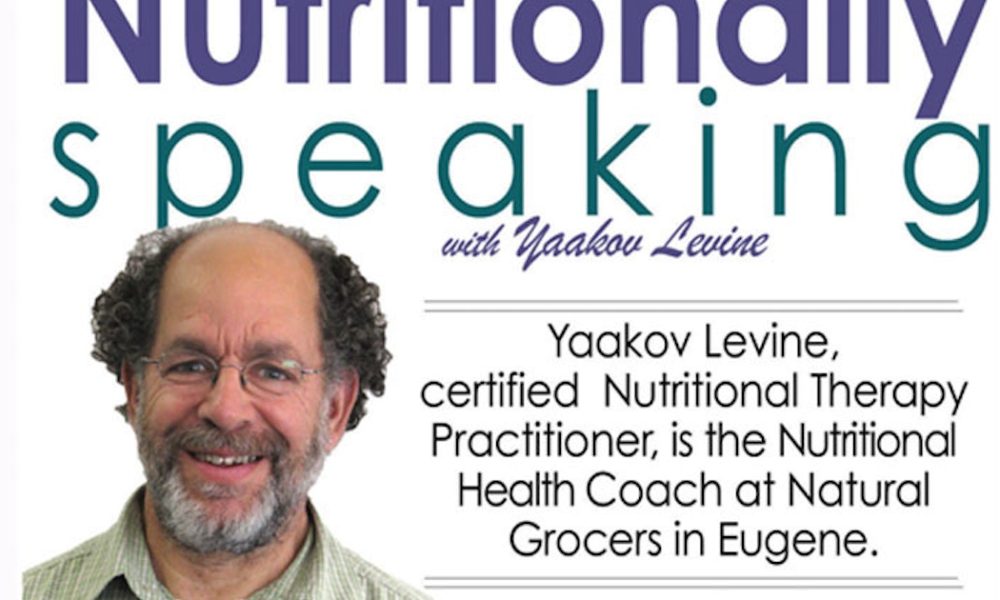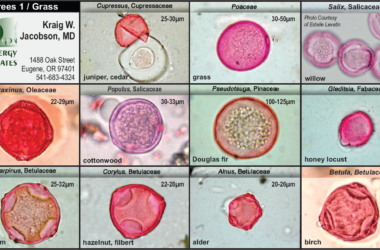
Got stress? Does life get complicated for you when you think about dietary or lifestyle changes you need to make to be healthier? I know that I am often overwhelmed with choices. I was recently at a nutritional therapy conference and learned about a myriad of additional options available to support my health. We all are navigating our own ”hallway of life.” We have a choice: are we heading down that hallway towards optimum health, or towards ”it” – a disease diagnosis?
Below are some simple guidelines to get us on the right path towards better health:
In my younger days I considered myself a bit of a rebel, and some of those energies linger, but I have learned that some ”rules” are needed. From them we have the opportunity to learn. When it comes to eating, when we listen to our bodies we can learn what works for us, and we all have teachers that share what they have learned. One of my teachers is family physician and author Cate Shanahan, MD, author of ”Deep Nutrition and Food Rules.” The following are a few of her suggestions from her book, ”Food Rules”:
1 Buy natural: There is no legal requirement for using ”natural” on a label…so beware! It may be easier to define what is not natural, such as highly processed foods or foods with the following on the labels: vegetable oil, sugar, MSG.
2 Avoid vegetable oils: This may be your most important shopping skill to learn. You all know that hydrogenated oils contain large quantities of trans fat and other toxic fats. Processed vegetable oils can disrupt basic metabolic functions and cause genetic damage, birth defects, cancer, heart attacks and strokes. Oils to avoid include canola, soy, corn, cottonseed, sunflower, safflower, grape seed and rice bran oil. These oils (including expeller pressed) have been superheated and since they are polyunsaturated they are damaged by the heat creating harmful molecules. Consuming these fats will contribute to inflammation and resulting chronic illness. You will find these oils in the following processed foods: chocolates (especially the Easter season treats), salad dressings, cookies (look for good old butter), granola, breakfast cereal, bread (look for breads made without oil).
3 Use healthy oils: These oils are more foodlike and have an aroma, are sometimes a bit cloudy (unrefined) and rich in health preserving phytochemicals: olive, peanut, coconut, cocoa butter, avocado, macadamia nut, sesame, walnut and flax seed. Use a variety of these oils, and enjoy the nuts and seeds as snacks.
4 Kick your sugar addiction: Sugar consumption releases endogenous opiates, which are brain chemicals that sometimes trigger behaviors we would rather avoid…such as eating more sweets! Side-effects of sugar consumption include (but are not limited to) reduced immune function, increased fat production/storage (obesity), fatty liver, heart palpitations, hypertension, anxiety and diabetes. Add vegetable oil to the mix and these effects are magnified! How do I know if I am addicted to sugar? Do sweets make me feel euphoric, with a ”don’t you dare take this away from me” feeling? Don’t be fooled, sugar is sugar! Food labels are getting harder to decipher; there are many pseudonyms for sugar that are meant to convince the consumer that they are healthy or ”natural.” The list is long; here are a few to watch for: evaporated cane juice, corn syrup, high fructose corn syrup, high fructose agave syrup (often listed as agave nectar), fructose, sucrose, malt, malt syrup, barley malt syrup, barley malt extract, maltose, maltodextrin, brown rice syrup, maple syrup, dextrose, beet juice, molasses, honey, grape juice, muscavado, turbinado, sucanat, invert sugar, xylose and anything else with ”ose” at the end.
5 Treat carbohydrates as sugar – they are! To reduce sugar intake it is important to reduce your carbohydrate intake. Once they are digested complex carbohydrates enter our bloodstream as sugar (see #4). Carbs are mostly empty calories. Limiting your carbohydrate (including fruits) intake to one or two servings a day will cut inflammation (and the resulting chronic diseases) and support healthy metabolism. Common carbohydrate foods that will raise your blood sugar are: pasta, bread, rice, potatoes, noodles, corn, breakfast cereals and bars, health or energy bars, crackers and fruit. Don’t use artificial sweeteners. Besides the many side-effects – blurry vision, intestinal tumors – these sweeteners trigger reactions in our gut. We have sweetness receptors in our in our intestines that will be triggered by anything sweet-tasting, including sugar, Splenda, etc. (even stevia herb) and trigger insulin production, which can and will raise our LDL cholesterol levels and promote fat production (obesity).
6 Avoid foods containing MSG: Yes this is still an issue! Just as there are good fats and bad fats, there are good and bad proteins. One of the bad ones is MSG. MSG’s main component is the amino acid glutamate and when it is in the unnatural form of monosodium glutamate, it can have potential toxic effects. Many manufactures hide these glutamates in ingredients such as HSP, hydrolyzed soy protein, HVP and hydrolyzed vegetable protein. These compounds have been linked to nervous system disorders and have been dubbed ”excitotoxins.” Glutamate can easily cross the blood-brain barrier and overstimulate nerves to the point of malfunction. This often is found as a major trigger resulting in overeating. Braggs Aminos will not list MSG on the label, but is processed in the same way as MSG and will have the same negative effects. Choose wheat-free tamari instead!
7 Cook foods properly. Free-range eggs and pasture-raised meats are healthy choices, but need to be prepared properly. When eggs are scrambled and fried with high heat, the fats and proteins are changed to an unhealthy form. The best way to prepare eggs is poached, hard/soft-boiled (portable), or sunny and runny. Overcooking meat creates what Dr. Shanahan calls Frankenstein molecules. Any time there are altered molecules in improperly prepared foods we will have inflammation as a response.
8 Don’t buy foods that make health claims. Have you seen the soda adds that proclaim ”always fat free?” If a product suggests that it is healthy, it is probably not! There are not usually health claims in the produce aisle. As Michael Pollan says, ”Don’t take the silence of the yams as a sign that they have nothing valuable to say about your health.” Foods with labels suggesting they are healthy with buzzwords such as high fiber and high antioxidants are generally the same overprocessed garbage with a new label. Avoid products with the following claims: low fat, antioxidants, low salt and phytonutrients. They may have added some cellulose (fiber) and some fruit or vegetable matter for the antioxidant/phytonutrient claim.
For more information on this and other health-related topics come in to see me/us at the Eugene Natural Grocers store. We offer free classes and free one-on-one health coaching sessions (call 541-345-3300). Find our store’s schedule of free online classes at: http://www.naturalgrocers.com/store-locations/eugene/OR/events.







